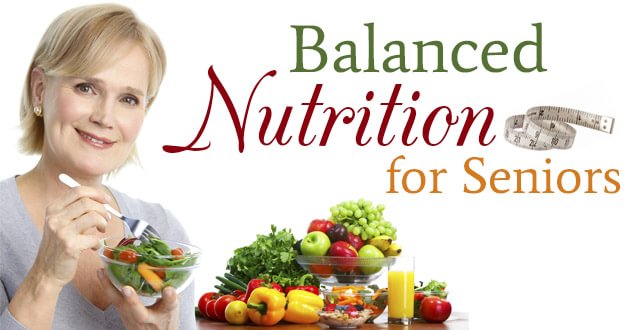In order to remain healthy and fit, seniors have to take adequate measures to eat right and exercise regularly. If you are over the age of 65, you want to live healthier so you can enjoy the sunset years of your life. Provided you follow an ideal diet with regular physical activity, you can certainly hope to live healthier and be happier.
Generally after 50, men and women experience different health problems like dental problems, low metabolism, diabetes, or other health problems that severely restrict their dietary habits. Changes in physiology are known to affect nutritional requirements in a human body; so nutritionists have concocted a diet that is more suitable for people over the precious age of 65.
Recent health studies have claimed that about 90% of Americans over the age of 65 suffer from degenerative disorders, such as osteoporosis, heart disease, diabetes, or macular degeneration. Once considered terminal diseases, these can now be comfortably combated with changes in diet, nutrition, and physical activities. You can also refer to Guide on Diet for Senior Citizens (Diet.com) for valuable guidance with medical advice.
Here is a snapshot of the balanced diet chart provided for men and women over 65 in the above guide:
The daily caloric intake for women can vary between 1,600 and 2,200 calories, depending on the level of physical activities. The daily caloric intake for men can vary between 2,000 and 2,800 calories, depending on the level of physical activities. These figures have been recommended for individuals above the age of 50, but they are equally applicable to seniors above the age of 65.
The above reference includes dietary guidelines from the US Department of Agriculture (USDA), which recommends all senior diets should consist of a balanced combination of five food groups: protein, fiber, fruits, vegetables, and fat. The daily intake of each of these food groups is provided below.
Five Critical Food Groups to Follow
Senior citizens have to take extra care to ensure their daily diet is rich in protein and fibers. The protein helps in repairing bad or damaged body muscles and tissues. A controlled amount of fat can provide energy and fresh fruits and vegetables—along with pulses, beans, nuts or seeds —provide vitamins, antioxidants, and fibers. Fiber also helps in controlling cholesterol and blood sugar. This controlled combination of five major food groups can help senior citizens maintain supreme health and optimum body weight.
- Grains: 5-10 ounces, with about 3 ounces from whole grains
- Vegetables: A variety of green and colored vegetables amounting to 2-3.5 cups
- Fruits: Mixture of citrus and other fruits amounting to 1.5-2.5 cups
- Milk and milk products: 3 cups of milk + 3 cups of milk products
- Proteins―meat, poultry, fish, dry pulses or beans, eggs, and nuts: 5-7 ounces of lean meat, poultry or fish, .25 cup of cooked beans or pulses, 1 egg, and .5 ounce of nuts or seeds.
The USDA also provides some healthy cooking tips to ensure the above food groups are consumed in the healthiest possible ways:
- When buying protein such as meat or fish, select lean cuts or skinless poultry
- Trim off any excess fat before cooking
- Cook in non-stick pots and pans with minimum oil or no oil
- Use cooking methods like boiling, baking, steaming, broiling, or roasting – avoid deep frying
- Season foods with herbs, spices, or juices, rather than with fat
The reference included in this article provides detailed information on recommended dietary practices for seniors above the age of 65.

